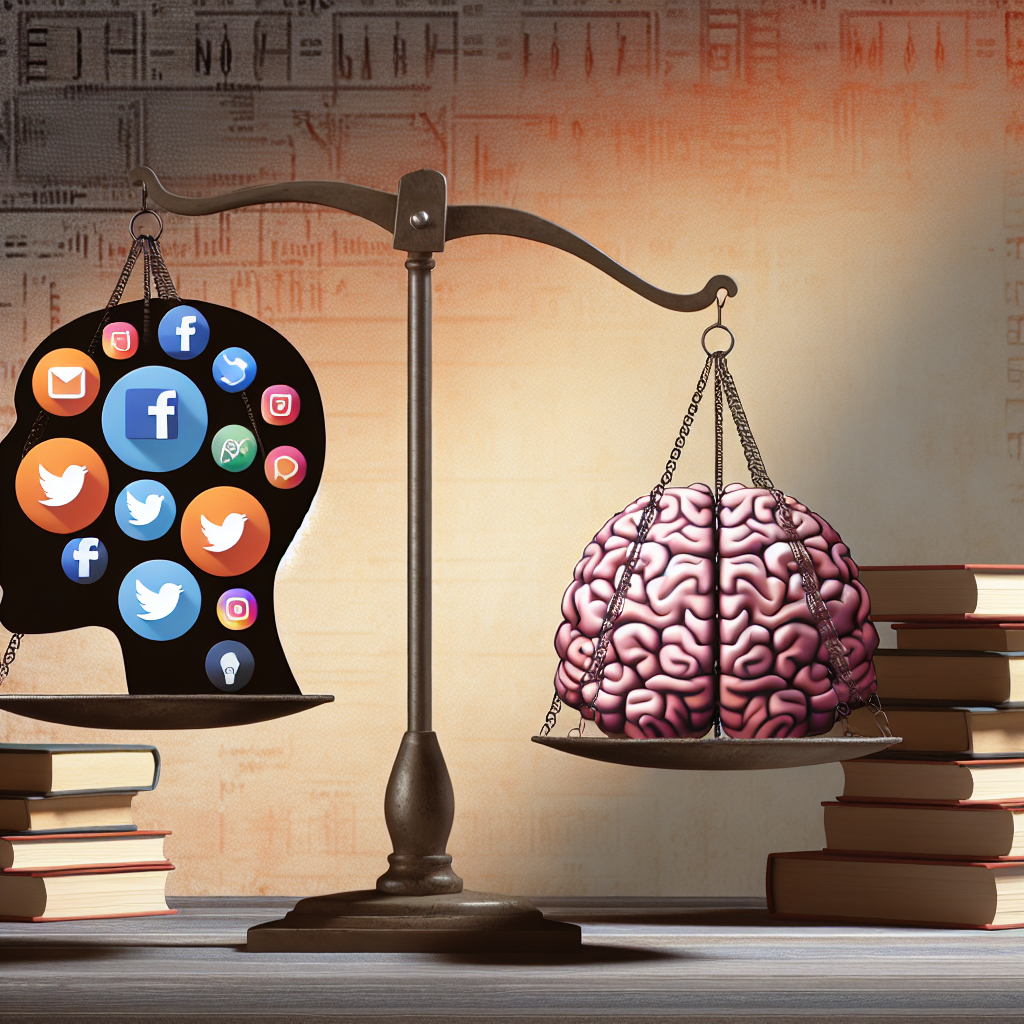In the age of social media, it seems that almost everyone is constantly connected online. Whether it’s through scrolling through Instagram, updating your status on Facebook, or tweeting your thoughts on Twitter, social media has become an integral part of our daily lives. While social media can have many benefits, such as connecting with friends and family, sharing your experiences, and staying informed about current events, there is also growing concern about its impact on mental health.
A psychological research study conducted on the impact of social media on mental health sheds light on the potential negative effects that heavy social media use can have on individuals. The study looked at how social media usage relates to mental health problems such as depression, anxiety, and loneliness. The findings suggest that there is indeed a correlation between high levels of social media use and poor mental health outcomes.
One of the key findings of the study is that excessive social media use can lead to feelings of depression. This is because social media often presents a skewed version of reality, with users showcasing only the best parts of their lives. This can create unrealistic expectations and lead to feelings of inadequacy and low self-esteem. Additionally, constantly comparing oneself to others on social media can exacerbate feelings of loneliness and isolation.
Another concerning finding is the link between social media use and anxiety. The constant need to check notifications, respond to messages, and maintain an online presence can create a sense of pressure and overwhelm. This can lead to heightened levels of anxiety and stress, as individuals feel the need to constantly be connected and available online.
The study also found a correlation between social media use and feelings of loneliness. While social media can provide a sense of connection with others, it can also lead to feelings of isolation if individuals compare their own lives to the seemingly perfect lives of others online. This can create a sense of FOMO (fear of missing out) and contribute to feelings of loneliness and disconnection from real-life relationships.
Overall, the research study highlights the potential negative impact that excessive social media use can have on mental health. While social media can be a valuable tool for staying connected and informed, it’s important to be mindful of how much time we spend online and how it affects our mental well-being.
FAQs:
1. Is all social media use bad for mental health?
While excessive social media use can have negative effects on mental health, not all social media use is inherently harmful. It’s important to strike a healthy balance and be mindful of how social media affects your mood and well-being.
2. How can I reduce the negative impact of social media on my mental health?
One way to reduce the negative impact of social media on your mental health is to limit your screen time and take regular breaks from social media. It’s also helpful to curate your online feed to include positive and uplifting content, and to be mindful of how much time you spend comparing yourself to others online.
3. Can social media be a source of support for mental health issues?
While social media can exacerbate mental health problems, it can also be a source of support and connection for individuals struggling with mental health issues. Online forums and support groups can provide a sense of community and solidarity for those experiencing mental health challenges.
4. Should I completely quit social media to protect my mental health?
Quitting social media completely is not necessary for everyone, but it may be beneficial for some individuals, especially if social media use is exacerbating mental health issues. It’s important to assess how social media affects your mental well-being and make decisions that support your overall health and happiness.




Leave A Comment